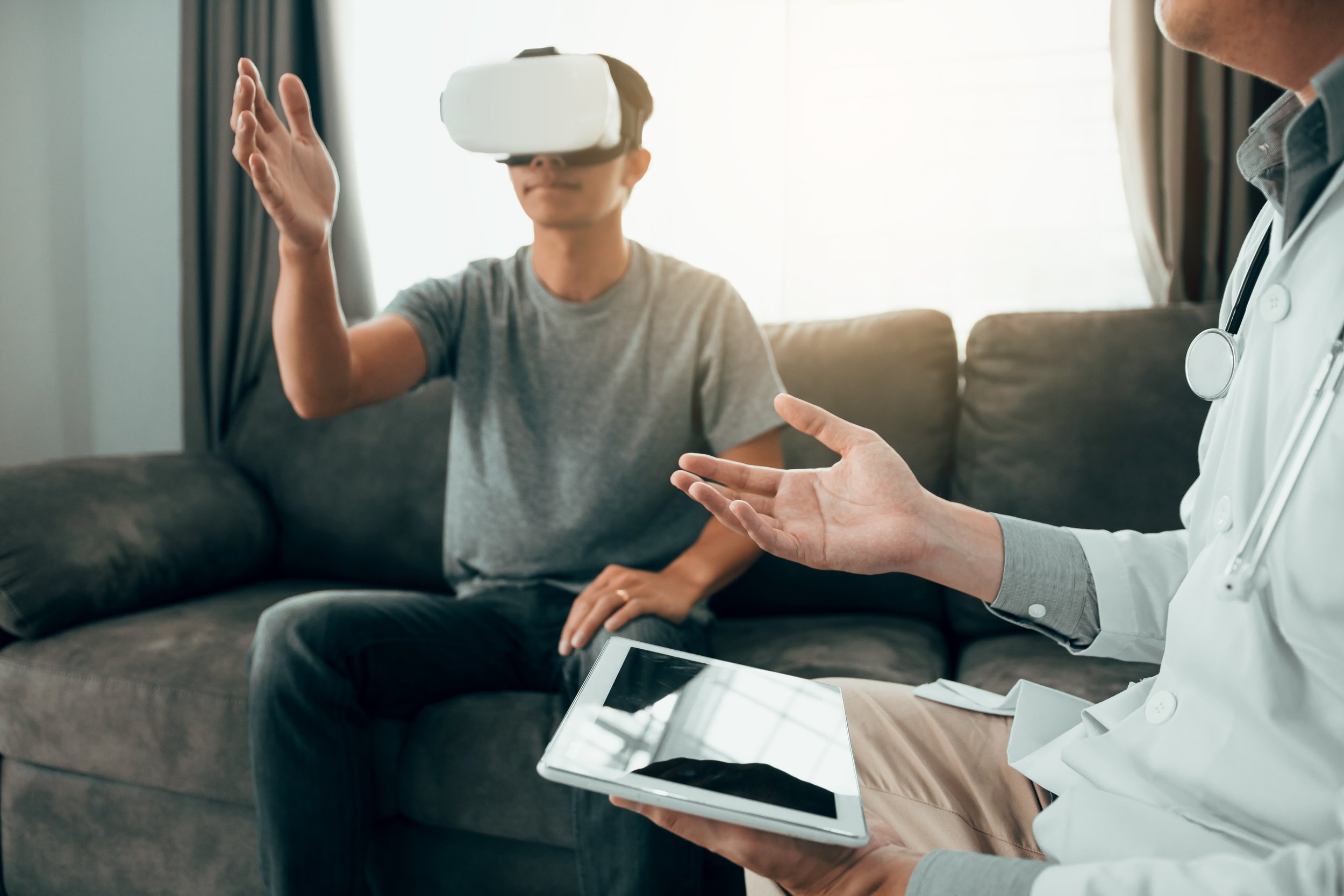Rehab Reimagined Blogs & Research

Why XR Will Become a Standard of Care in the Next 10 Years
In rehabilitation, we are entering a new phase of innovation. This shift is not about replacing clinicians but enhancing how we deliver care. Extended Reality (XR), which includes virtual, augmented, and mixed reality, is moving rapidly from a “nice-to-have” to a “necessary” tool in modern therapy.

From Patient Care to Platform Creation: Why I Left the Clinic to Build XR Tools for Rehab
For over a decade, I worked as a Physical Therapist—shoulder to shoulder with patients who were fighting some of the biggest battles of their lives. Stroke survivors learning to walk again. Traumatic brain injury patients working to regain balance. Individuals struggling with dizziness, double vision, or post-concussion symptoms just trying to feel “normal” again.
To this day, I remember every single one of them. Their faces. Their stories. Their breakthroughs and setbacks. I often find myself wondering how they’re doing now—hoping they’re living fuller, more independent lives. Every one of them still holds a special place in my heart.
Helping people heal became a part of my identity long before I ever stepped into a non-clinical role.

How Remote XR Therapy Is Revolutionizing Rehabilitation Access and Outcomes
There are moments in healthcare innovation when technology doesn’t just support clinical practice—it redefines it. The surge of remote Extended Reality (XR) therapy and telerehabilitation is one of those pivotal shifts. Across disciplines like stroke rehabilitation, cognitive therapy, and balance training, clinicians and researchers are witnessing a transformation in how, where, and when rehabilitation happens.

XR in Rehab: What’s New in 2025 and Why It Matters for Reimbursement
XR is reshaping rehabilitation, no longer a novel tool, it’s evolving into a core component of modern physical and occupational therapy. As clinics grow more comfortable with immersive tech, 2025 marks a pivotal moment: the conversation is shifting from “does it work?” to “how do we pay for it?”

Bridging the Gap: Clinician Perspectives on Integrating Virtual Reality into Therapy
In recent years, virtual reality (VR) has gained momentum as a powerful tool in rehabilitation settings. Yet, despite a growing body of evidence supporting its efficacy, successful VR adoption in physical and occupational therapy often hinges on more than just the technology itself — it depends on clinician leadership. Understanding therapists' experiences and perceptions is essential for making VR a meaningful, sustainable addition to patient care.

The Expanding Role of Virtual Reality in Neuro Rehab: Why AVRwell is on the Right Path
In my journey as a Physical Therapist, I’ve always believed in the power of innovation, especially when it has the potential to redefine independence for our patients. Over the last five years, I've witnessed how Virtual Reality (VR) has emerged not just as a novel adjunct to care, but as a transformative tool for patients across a wide range of conditions, from vestibular disorders and neurologic impairments to chronic pain, mobility limitations, and difficulties with functional daily tasks.

From Curiosity to Clarity: How Virtual Reality Could Reshape Concussion Recovery
Coming out of the course, I found myself thinking about how I could be even more creative in treating this population. I thought… What about VR? I already knew it could help, I’ve seen firsthand how powerful it is in rehab. It motivates patients, it engages multiple systems, and it meets them where they are. But this time, I wasn’t just interested in the big-picture benefits. I wanted to dig deeper into the research. I wanted to know: what does the science actually say about VR and concussion recovery, specifically?

Harnessing Virtual Reality for Parkinson’s Disease Rehabilitation: A Game-Changer in Balance and Mobility
As a professional working with PD patients, I have personally witnessed the benefits of VR and augmented reality (AR) in improving balance and stride length. Notably, I have observed carryover effects in posture following VR-based reaching activities, particularly with overhead and cross-body reaching. These improvements align with growing research that supports VR as an engaging and effective rehabilitation tool.

Occupational Therapy: Inspiring Hope, Changing Lives
Since the beginning of my career, I have had the privilege of learning and growing alongside so many outstanding occupational therapists. Their compassion, innovation, and dedication inspire me every day. They have taught me how to see the whole person, how to integrate creativity into rehabilitation, and how to empower patients to reclaim their independence in ways that truly matter to them.

The Future of Physical Therapy: How Virtual Reality and Gamification Are Revolutionizing Rehabilitation
A recent systematic review by Calderone et al. (2025) found that VR and gamification significantly enhance rehabilitation outcomes for individuals with neuromuscular diseases (NMDs) by improving motivation, engagement, and adherence to therapy. As more clinicians recognize the importance of patient engagement, the use of immersive technologies in therapy is growing, transforming how rehabilitation is delivered.

Virtual Reality in TBI Rehabilitation: A Neuro Rehab PT’s Perspective
March is Traumatic Brain Injury (TBI) Awareness Month, a time dedicated to raising awareness about brain injuries and advancing research and treatment approaches that help patients recover. As a neuro rehab physical therapist, I’ve worked closely with TBI patients and have seen firsthand the challenges they face in regaining independence. Rehabilitation is never one-dimensional—it requires an integrated approach that addresses motor recovery, cognitive function, and balance control all at once.

Transforming Rehabilitation with Virtual Reality: A Guide to Implementing VR Systems in Your Facility
Virtual Reality (VR) is rapidly gaining recognition as a transformative tool in rehabilitation, offering immersive environments that promote engagement and enhance functional outcomes. However, successfully integrating VR into clinical practice requires careful planning, resource allocation, and ongoing support. This blog post outlines strategies for healthcare providers to adopt VR technology effectively.

The Unseen Impact: How Physical Therapy Revolutionizes Visual Rehabilitation
Physical Therapy Revolutionizing Visual Rehabilitation

From Boredom to Motivation: Revolutionizing Rehabilitation with Virtual Reality Therapy
Revolutionizing Rehabilitation with Virtual Reality Therapy

